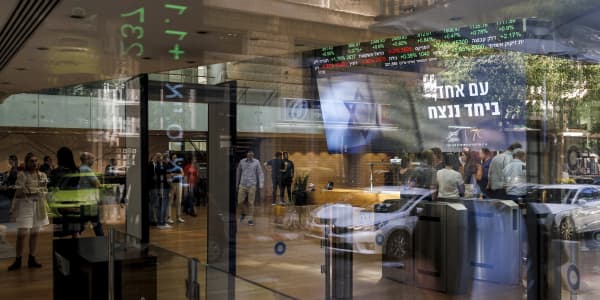Founder: Ryan Petersen
CEO: Dave Clark
Launched: 2013
Headquarters: San Francisco
Funding: $2.3 billion
Valuation: $8 billion
Key technologies: Cloud computing
Industry: Logistics
Previous appearances on Disruptor 50 List: 3 (No. 1 in 2022)
As supply chain bottlenecks roiled the global economy throughout 2022, logistics-focused startups looking to disrupt the opaque shipping industry were having their moment.
No company better personified that than supply chain software startup Flexport, which topped the 2022 CNBC Disruptor 50 list.
Founded in 2013 by Ryan Petersen to try to better manage the flow of goods that get put on cargo ships, planes, trucks, and railroads and then transported all over the world, Flexport moved freight forwarding and brokerage services into the cloud alongside deeper data analysis.
That approach at the right moment helped Flexport quickly become one of the hottest startups, raising $935 million in a Series E funding round that valued it at $8 billion in February 2022, nearly triple its last reported valuation in 2019.
That led to higher ambitions as well, with Petersen saying on CNBC's "TechCheck" in May 2022 that the company "could be one of the biggest companies in the world if we live up to our potential."
But as supply chain issues subsided and the costs of shipping started to fall drastically as demand for goods and shipping containers dropped, Flexport also faced new challenges.
Petersen announced in June that he would be stepping down as CEO and would transition into an executive chairman role, and his replacement would be Dave Clark, CEO of Amazon's worldwide consumer business, who oversaw the company's sprawling retail efforts. In a series of Tweets, Petersen said that the company "doesn't need another executive. We need another entrepreneur."
Flexport laid off 20% of its global workforce, or roughly 640 employees, in January, with Petersen and Clark writing in a memo that while the company is "overall in a good position," it is "not immune to the macroeconomic downturn that has impacted businesses around the world."
"Lower volumes, combined with improved efficiencies as a result of new organizational and operational structures, means we are overstaffed in a variety of roles across the company," the memo said.
Clark, who officially took over the CEO role on March 1, has started to put his stamp on the company and transform it into a defined business unit model.
Flexport has also increased its ties to Amazon competitor Shopify, first launching an app in February that gives new tools to small businesses for managing and tracking ocean cargo shipments, with the goal of ultimately combining orders to fill ocean containers and achieve cheaper ocean freight costs compared to air. Then, just last week, Flexport acquired Shopify's logistics and order fulfillment business.
While some things have changed, the overall mission of the company has not.
"As [Clark] said when I was interviewing him, 'In 5 years, Flexport will be known, hands down, as the best supply chain company in the world'" Petersen tweeted in June.
Sign up for our weekly, original newsletter that goes beyond the annual Disruptor 50 list, offering a closer look at list-making companies and their innovative founders.






















































